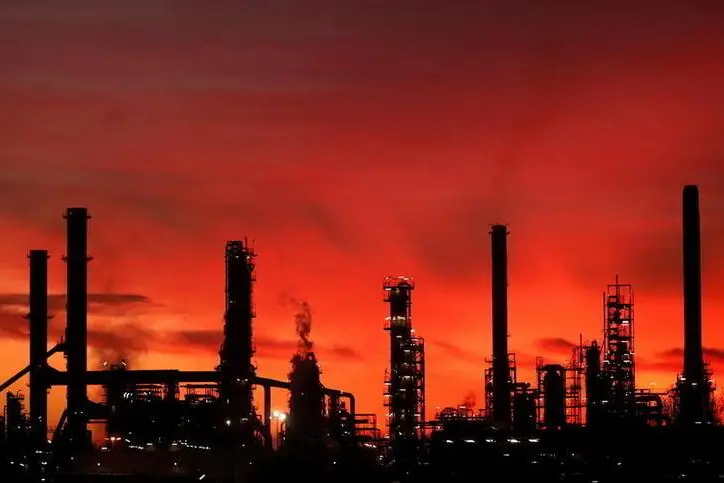PHOTO
LONDON- Oil prices fell on Monday as a stronger dollar, fears over soaring COVID-19 cases around the world and the slow pace of vaccination against the virus outweighed a better-than-expected quarterly rebound for China's economy.
Brent crude was down 16 cents, or 0.3%, at $54.94 per barrel at 1445 GMT, and West Texas Intermediate U.S. crude fell 10 cents, or 0.2%, to $52.26.
"Corona-induced economic fears, a stronger U.S. dollar and more pessimistic investor sentiment are all playing their part in the fact that Brent is trading ... around $3 lower than last Wednesday," said Commerzbank analyst Eugen Weinberg.
The benchmarks had rallied in recent weeks, buoyed by COVID-19 vaccine rollouts and a surprise cut of output by Saudi Arabia. However, the slow pace of vaccination has raised doubts over how soon economies could recover.
A UK official said Britain's vaccine rollout was limited by a "lumpy" manufacturing process, and Pfizer said it was distributing fewer doses in Europe in January than originally contracted.
"Vaccination campaigns, although ongoing, are lagging the speed needed to fast-track a global recovery in the first quarter and the comeback for oil demand will be slow," said Rystad Energy’s head of oil markets Bjornar Tonhaugen.
The U.S. dollar strengthened for a third consecutive day on Monday to a four-week high, weighing on crude prices. Oil is usually priced in dollars, so a stronger greenback makes crude more expensive for buyers with other currencies.
Security concerns ahead of this week’s U.S. presidential inauguration are also dragging on investor sentiment, said PVM Oil analyst Tamas Varga.
"In addition to the coronavirus running amok, this week’s tense presidential inauguration can also cause unease amongst investors," he said.
Oil prices clawed back some losses after Chinese data showed the economy of the world's biggest oil importer picked up speed in its recovery from the coronavirus pandemic.
Prices also found support in a drop in Libyan oil output, with Waha Oil Company reducing production by up to 200,000 barrels per day because of maintenance on the main pipeline that links the Al-Samah and Al-Dhahra oilfields to Es Sider port.
(Reporting by Bozorgmehr Sharafedin in London; additional reporting by Aaron Sheldrick in Tokyo. Editing by Jason Neely and Mark Potter) ((bozorgmehr.sharafedin@thomsonreuters.com; Twitter: @bozorgmehr;))





















